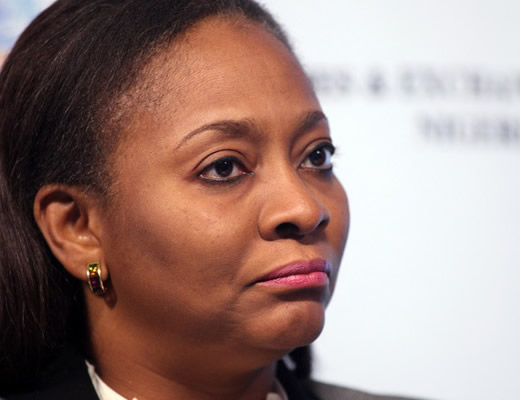
FOR Vice President and Treasurer, World Bank, Aruma Oteh, diversifying Nigeria’s economy from its over-dependence on crude oil is the only strategy to effectively revive the parlous economy.
The World Bank chief who spoke on “The proper role of oil in the context of accelerating growth and development in Nigeria,” at the Philip Asiodu Lecture series in Lagos yesterday, also said that apart from the effects of declining crude oil prices, the country should begin to make preparations to survive the impact of cheaper renewable energy on oil and gas demand.
She said that given the level of price uncertainty and Nigeria’s dependence on oil, it was all the more important to diversify away from oil. She stressed the need for the country to apply a strategic mind-set in utilising its oil revenues to finance the diversification of its economy, on the one hand, assessing comparative advantages and building on them and, on the other hand, launching into new industries that are destined to grow in the 21st century.
Oteh stated: “Abundant availability of oil is one of Nigeria’s comparative advantages and diversifying its economy away from oil should not be construed as not taking advantage of efficient linkages between oil and related industries. Because of the abundant oil resources, the cost of energy to Nigerian industries is relatively lower; therefore, energy-intensive industries and those that use by-product derived from oil such as petrochemicals, aluminium, steel production, fertiliser and bio electronics should benefit.”
Oteh said that to diversify the economy and leapfrog development, Nigeria should invest in human capital, its other and most important endowment. “Three components of human capital are critical: education, workforce quality and specialised training for researchers and scientists. As discussed in the next section, large investments in primary, secondary, tertiary and vocational education are also essential as a key pillar to building a knowledge economy,” she said.
According to her, a more inclusive economy is needed to effectively transmit as much oil wealth as possible into improving the well being of all Nigerians. “Nigeria’s over dependence on oil revenues for its economic growth and government budgets makes it highly susceptible to oil price volatility. Furthermore, the future of the oil industry will be shaped by climate change and environmental concerns which require a global transition from fossil fuels to cleaner, renewable and more efficient energy sources. Nigeria’s current dependence on oil is all the more unsustainable in the face of this trend,” she said.
Speaking on the effects of dependence on oil resources, she said: “Nigeria has the second largest oil reserves in Africa but not all of it is economically viable to extract at low oil prices. Depending on geology, some reserves are more expensive to exploit than others and only a high oil price can justify the costs in some cases.
‘‘In contrast, Saudi Arabia and its Gulf neighbours, blessed by nature, are profitable even when oil is at $20 per barrel due to their readily accessible reserves. While Nigeria’s break-even cash cost of oil is around $32 per barrel, the country’s fiscal break-even cost of oil was around $122 for 2015 budget.
‘‘In other words, when oil drops below $30 per barrel, Nigerian production, on average, is no longer profitable; and at $40 per barrel, only about 16 per cent of Nigeria’s reserves are economically viable.”
Dwelling on the impact of cheaper energy, she said that energy demand would remain, but oil and gas were gradually taking the back seat as energy fuels. Oteh said that Nigeria must begin to map out strategies and ambitious but realistic action steps with timelines to ensure the replacement of fossil fuels as sources of energy.
Source: The Guardian
